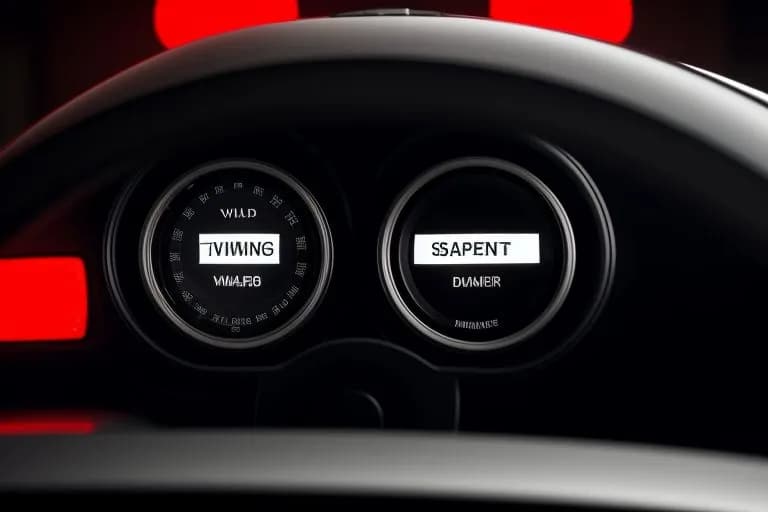Should I Buy a Manufacturer Buyback Vehicle?
Discover the pros and cons of buying a manufacturer buyback vehicle, including essential details, common myths, and hidden benefits.
What to Know About a Car Manufacturer Buyback
Deciding whether to purchase a manufacturer buyback vehicle can be challenging. These vehicles, also known as lemon law buybacks, come with unique benefits and risks. By understanding what they are, how they work, and common misconceptions, you can make an informed choice.
In this article, we’ll delve into essential details about manufacturer buybacks, including qualifications, processes, and their true value.
Car Manufacturer Buybacks Explained
A manufacturer buyback vehicle is a car repurchased by the automaker due to a defect or issue that couldn’t be resolved within a reasonable timeframe. These vehicles are often referred to as 'lemon law buybacks,' as the buyback process is typically governed by lemon laws in the U.S.
Once the issue is resolved, the manufacturer resells the car, often at a lower price, with clear disclosure of its history.
When a Car Is a Lemon: Manufacturer Buyback Qualifications
For a vehicle to qualify as a manufacturer buyback, it must meet specific criteria:
- The car must have a substantial defect covered under warranty.
- The defect should significantly impair the vehicle’s use, value, or safety.
- The manufacturer failed to fix the issue after a reasonable number of attempts.
- The issue arose within a specific timeframe or mileage, as defined by local lemon laws.
These qualifications ensure that only truly problematic vehicles are repurchased by automakers.
Car Manufacturer Buyback Limitations
Although buyback vehicles are repaired before resale, there are some limitations:
- The title will often indicate the vehicle is a buyback, potentially affecting resale value.
- Not all defects can be entirely fixed, and some residual issues might remain.
- Warranty terms may differ from those offered for new vehicles.
Being aware of these limitations is crucial when considering a buyback purchase.
The Manufacturer Buyback Process
The process of manufacturer buybacks generally follows these steps:
- The owner reports an unresolved issue covered under warranty.
- The manufacturer attempts repairs multiple times, as required by lemon laws.
- If unsuccessful, the manufacturer repurchases the vehicle at the agreed-upon value.
- The manufacturer repairs and resells the vehicle, often at a discounted price.
What Happens to Buyback Vehicles
Once a car is repurchased, manufacturers repair the defect and disclose its history before reselling. These vehicles are often sold at a lower price than similar non-buyback cars. The title is typically marked to indicate its buyback status, ensuring transparency.
Manufacturer Buyback Information & Myths
Understanding the facts about manufacturer buybacks can help dispel common misconceptions.
The Hidden Value of Manufacturer Buybacks
While buyback vehicles have their drawbacks, they can also offer unique benefits:
- Lower purchase prices compared to similar models.
- Repairs are completed and verified by the manufacturer.
- Clear disclosure provides transparency.
These advantages make buyback vehicles an attractive option for budget-conscious buyers.
Lemon Law Misconceptions
One common myth is that all manufacturer buybacks are unreliable. In reality, many buybacks perform just as well as non-buyback vehicles once repaired.
Manufacturer Buyback Myths
Let’s address some myths:
- Myth: All buybacks are defective vehicles.
Fact: Many buybacks are thoroughly repaired and perform like new. - Myth: Manufacturers only buy back cars to offload problematic inventory.
Fact: Lemon laws require automakers to repurchase vehicles with persistent issues. - Myth: Reselling buybacks is impossible.
Fact: Resale is easier when buyers are informed and prices are fair.
How to Inspect a Manufacturer Buyback Vehicle
Before buying a manufacturer buyback vehicle, conducting a thorough inspection is critical. Here's what you should focus on:
- Service Records: Request detailed service and repair history to confirm the defect has been resolved.
- Third-Party Inspection: Hire a trusted mechanic to assess the car's current condition.
- Title and Disclosure Review: Ensure the buyback status is clearly disclosed on the title and that there are no hidden surprises.
- Test Drive: Take the vehicle for a comprehensive test drive to check performance and comfort.
Performing these steps ensures you get a reliable vehicle and understand the associated risks.
Cost Benefits of Buying a Manufacturer Buyback
One of the biggest advantages of a manufacturer buyback vehicle is cost savings. These cars are often priced lower than similar models due to their history. Here's why:
- Discounted Prices: Buyback vehicles are sold at a reduced cost, offering excellent value for money.
- Repaired Issues: The defect has already been addressed, so buyers can benefit from a fully functional vehicle at a lower price.
- Negotiation Potential: The buyback status allows buyers more leverage during price negotiations.
This makes buybacks an attractive option for budget-conscious buyers who are willing to do their homework.
Table of Key Considerations for Manufacturer Buyback Vehicles
Here's a table summarizing key considerations when evaluating a manufacturer buyback vehicle:
| Factor | Importance | Details |
|---|---|---|
| Service Records | High | Ensure detailed records are available to verify defect resolution. |
| Title Status | High | Look for a clear disclosure of buyback status on the title. |
| Inspection | Critical | Have the vehicle inspected by a third-party mechanic. |
| Warranty | Moderate | Review the warranty terms to understand coverage limitations. |
| Price | High | Compare prices with similar models to determine value. |
Warranty Coverage for Manufacturer Buyback Vehicles
Manufacturer buyback vehicles often come with unique warranty terms. Here's what to know:
- Factory Warranty: Many buybacks retain the original factory warranty or a portion of it.
- Additional Coverage: Some manufacturers offer extended warranties to reassure buyers.
- Exclusions: Check for exclusions specific to buyback vehicles, as some issues may no longer be covered.
Understanding warranty terms can provide peace of mind and protect your investment.
When Should You Avoid a Manufacturer Buyback Vehicle?
While buyback vehicles can be a good deal, they aren’t suitable for everyone. Here are scenarios where you might avoid them:
- Lack of Transparency: If the seller cannot provide detailed service and repair records, proceed with caution.
- Unresolved Issues: Avoid vehicles with defects that have not been fully addressed.
- High-Risk Use: If you rely on the vehicle for critical tasks, consider a non-buyback option for added peace of mind.
In these cases, exploring other options may be the better choice.
Our Services
Window Sticker
Print window sticker for your vehicle
VIN Decoder
Decode any vehicle manufacturer
Classic VIN Lookup
Decode VINs for classic and vintage vehicles
License Plate Lookup
Search license plate information
VIN Check
Decode any vehicle in US states
Build Sheet by VIN
Get detailed build sheet for your vehicle
Dealers
Unlimited vehicle history reports
Paint Code by VIN
Find your vehicle's exact paint color code
VIN Explorer
Explore detailed vehicle information by VIN
Warranty Check
Check warranty information by VIN
Vehicle Recalls
Understanding Vehicle Recalls: A Complete Guide

Ethan J. Caldwell
Ethan James Caldwell is a graduate of George Washington University (GW). Born and raised in Washington, Ethan has had a lifelong passion for cars, motorcycles, and all things automotive. From a young age, he was captivated by the mechanics, design, and culture surrounding vehicles, which eventually inspired his career. Ethan currently drives a silver 2005 Honda Accord, a testament to his appreciation for reliable and timeless vehicles.
Frequently Asked Questions
A manufacturer buyback vehicle is a car repurchased by the automaker due to unresolved issues that couldn’t be fixed after multiple attempts.
Yes, they are repaired to meet safety standards and sold with full disclosure.
Buybacks are discounted to account for their history and potential limitations.
It might, as some insurers consider title history. However, this varies by provider.
Verify repairs, review warranties, and ensure the defect has been resolved.
Our Blog Articles
Discover insights about vehicle history, maintenance, and buying guides

VIN Swap Meaning: What You Need to Know
Understand the VIN swap meaning, its risks, and how to protect yourself from fraud. Get the facts on swapped VINs and how to check vehicle history.

ABS and Traction Control Light On: What You Need to Know
Is your ABS and traction control light on? Learn the common causes, what to do, and how to keep your vehicle safe. Get expert advice on ChassisVIN.com.

Check Cars Owner: Find Owner Information Easily
Need to check cars owner? Use ChassisVIN.com to quickly find owner information, vehicle history, and more. Get peace of mind before buying or selling a car.